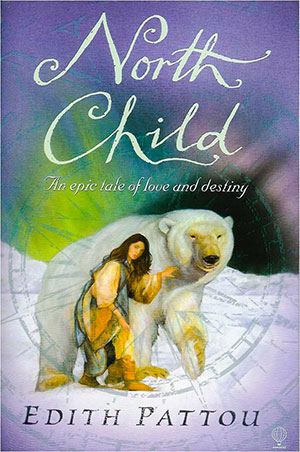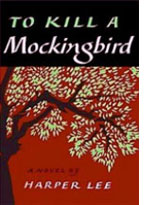Frequently Asked Questions
How do you get your ideas?
 Here are my two favorite quotes on that subject: Here are my two favorite quotes on that subject:
“From a little ideas shop in Bognor Regis.” Neil Gaiman.
“(Writers) never ask one another where we get our ideas. We know we don’t know.” Stephen King.
For some reason I’ve never had trouble getting ideas. I have notebooks full of them, though some are a whole lot better than others. And the truth is, there is no easy answer to where they come from. My best guess is that they come from some cosmic blending of all the experiences I’ve had, the books I’ve read, the people I’ve met, the music I’ve listened to, the sunrises I’ve watched, the meals I’ve shared, the journeys I’ve taken. It's like my brain is some super sophisticated blender that mashes things together without obliterating them.
How long does it take you to write a book?
It seems to take me about two years to write a book. But it varies a lot. It only took me three months to write Mrs. Spitzer’s Garden, though it took five years for it to become a book. And Ghosting only took me six months to write, through revising it took about a year!
Where were you born and where did you grow up?
I was born in Evanston, Illinois. I went to elementary school in Winnetka, Illinois, and high school in the city of Chicago.
How do you pronounce your last name?
Pattou rhymes with tattoo. It’s French. My ancestors were French Huguenots who lived mostly in Belgium.
What are your hobbies?
Walking (preferably around a lake but cities are good, too), reading (can’t go to sleep at night without a book), going to Broadway musicals, listening to music, and making collage art. I’ve also recently taught myself how to fold paper cranes, in honor of Ghosting, and a friend has just enlisted me to help fold 1000 paper cranes for his wedding reception!
When did you first decide to be a writer?
I got the first glimmer when I was ten and fell in love with the Narnia books by C.S. Lewis.
Why haven’t you written volume three of the Songs of Eirren? Are you ever going to?
The third volume was supposed to center on the character of Talisen, the carefree bard. I compiled a lot of notes, but never could get going on it. I’ve since wondered if it was because Talisen was just a little too carefree and, in fact, I wanted him to stay that way. But someday I do think his story, and the rest of Collun and Brie’s, will need to be told.
 What is North Child? Is it a sequel to East? What is North Child? Is it a sequel to East?
North Child is the same book as East. When they released the book in Great Britain, Usborne, my British publisher, decided that a different title would suit it better there.
Is there going to be a movie of East?
I hope so! A lot of people seem to think there should be one, and a talented producer has optioned it, so keep your fingers crossed.
Can I be in the movie?
That would be up to the talented producer mentioned above. I’m hoping for a cameo myself, as a Troll overseer, preferably with a whip.
What was your inspiration for the book Ghosting? Why did you tell it from multiple points of view and in free verse? And why have you stopped writing fantasy?
 Ghosting was one of those stories that snuck up on me, that kept tugging at me until I just had to write it. One of my favorite books of all time is To Kill A Mockingbird and in particular the Boo Radley plotline fascinated me. The bogey man who turned out to be a misunderstood good guy. Ghosting was one of those stories that snuck up on me, that kept tugging at me until I just had to write it. One of my favorite books of all time is To Kill A Mockingbird and in particular the Boo Radley plotline fascinated me. The bogey man who turned out to be a misunderstood good guy.
And when I was a child I remember vividly all the times my best friend and I would dare each other to do scary things—play hide and seek in the nearby cemetery, sneaking through grumpy neighbors’ yards, climbing forbidden fire escapes. More recently, I read a newspaper story about a man shooting at a car full of teenage girls who had dared each other to sneak onto his property. It was yet another of the many tragic gun-related incidents that happen in our country, and it got me thinking about issues of guilt and innocence, tragedy and survival.
I decided to tell Ghosting in free verse from the points of view of each of the kids involved in the events of that night because I wanted to give it an immediacy and a sense of all these different lives converging in one horrible moment of time. And I liked being able to use the shape and tone of the verse to express each person’s character.
And I haven’t stopped writing fantasy! See below.
What are you working on now?
At long last I am working on a sequel to East. (With apologies to those still waiting for the third Song of Eirren! Which would include my husband. Who is very annoyed.)
At first I thought Rose’s story with her white bear was done but late last year a “What if” question popped into my head and I was off and running! The story picks up nine years after East concludes.
Do you ever visit schools?
I don’t do many school visits mainly because I’m too disorganized and otherwise wouldn’t get any writing done, but I do set aside some time each year, so if you’re interested in a school visit, contact me by email and I promise to get back to you.
Where do you live?
Columbus, Ohio.
If you weren’t a writer, what would you want to be?
An artist, or a costume designer. Or a spy. Or a director of music videos.
What were your favorite books growing up?
Babar books, Oz books, C.S. Lewis’ Narnia books, Harriet the Spy by Louise Fitzhugh, Harold and the Purple Crayon by Crockett Johnson, and finally, an egregious series about a large noisy impossibly happy family called The Happy Hollisters. They solved crimes. I still own all 33 of them.
Where and when do you write?
I write best in the morning, but I think about whatever story I’m writing throughout the day, especially on walks and while going to sleep at night. And I’ve always preferred writing in public places, like libraries and coffee shops. I don’t always go to the same place either, but go through phases. Most of East was written in the café of a nearby Barnes and Noble. Hero’s Song at the West Campus library of Duke University. I wrote Ghosting in my two favorite local public libraries, dividing my time depending on my mood.
Do you have any advice for people who want to be writers?
My best advice is to read, read, read. And while you read, pay attention. How does the author keep you wanting to know what happens next and how does he or she create characters that you care about and can’t wait to see what will happen to them. Also, write as much as you can. Keep a journal, write stories, poems, plays, blogs, whatever. And finally, finish things. That may sound obvious, but to my mind it is the mark of a true writer that he/she has the discipline to stick to and finish a story. |

